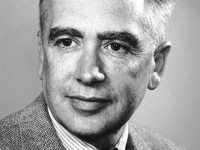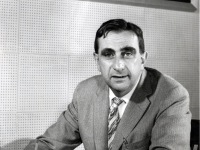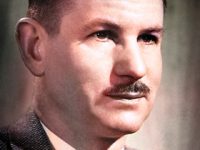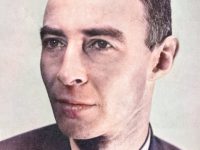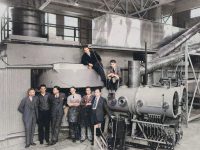Emilio Segrè and the Discovery of the Antiproton
On February 1, 1905, Italian physicist and Nobel Laureate Emilio Segrè was born. Segrè is best known for his discovery of the elements technetium and astatine, and the antiproton, a sub-atomic antiparticle, for which he was awarded the Nobel Prize in Physics in 1959. “If some nuclear properties of the heavy elements had been a little different from what they turned out to be, it might have been impossible to build a…
Read more

